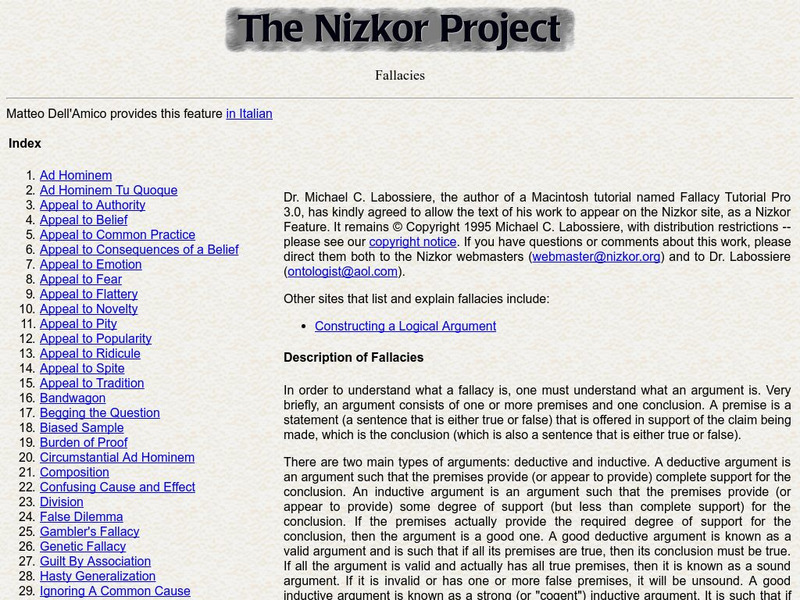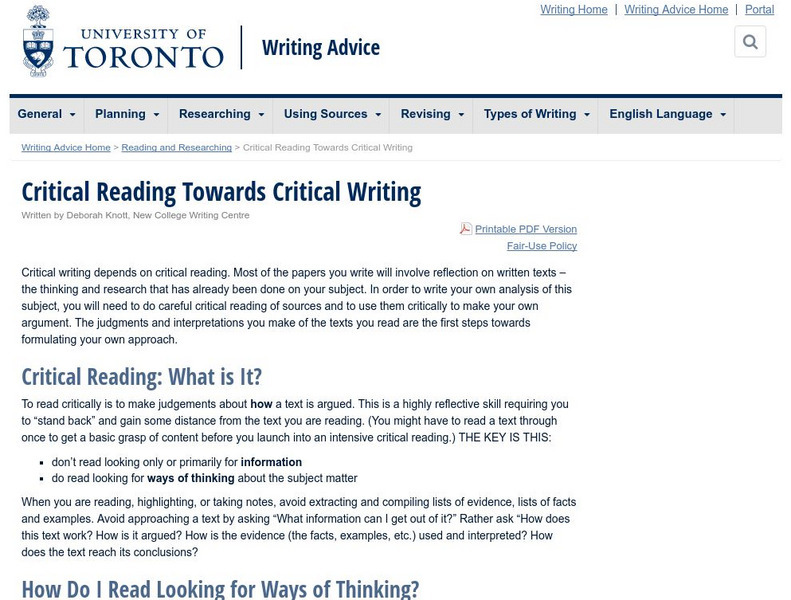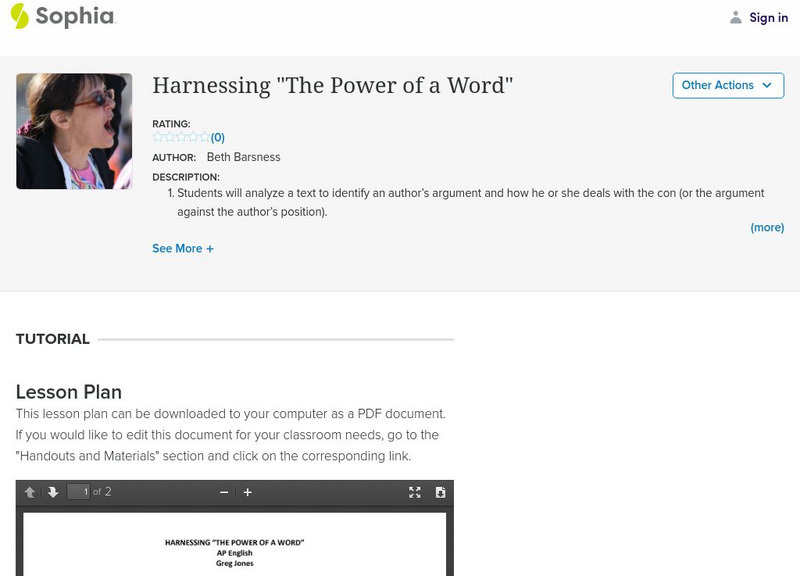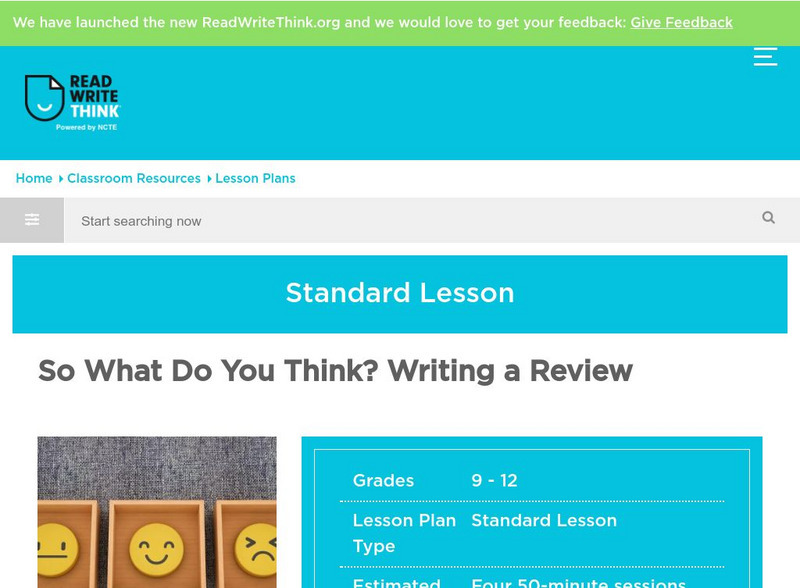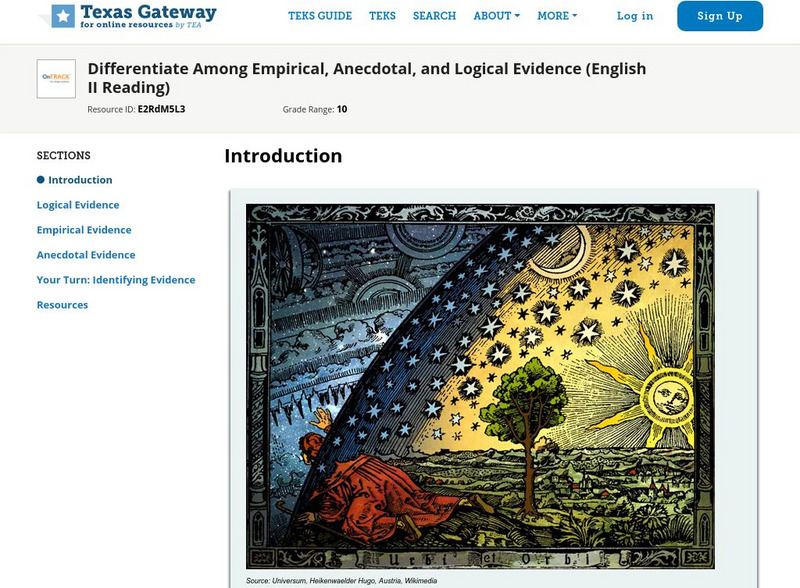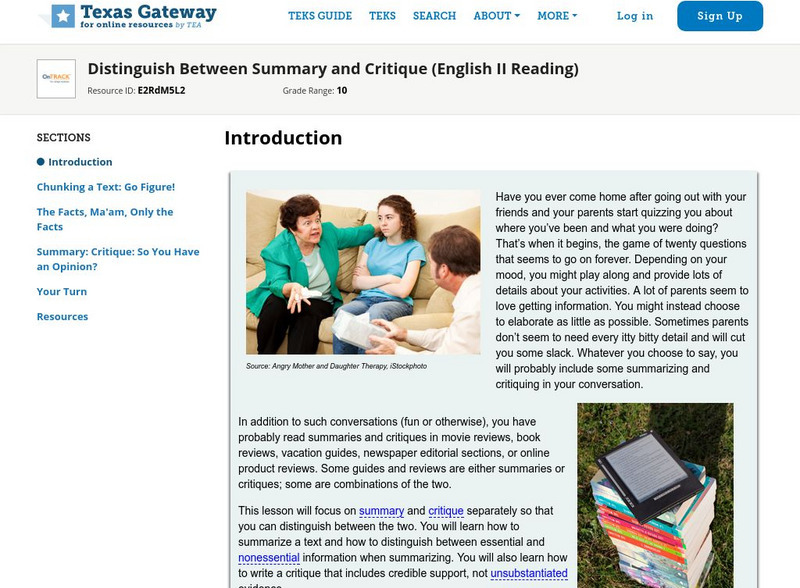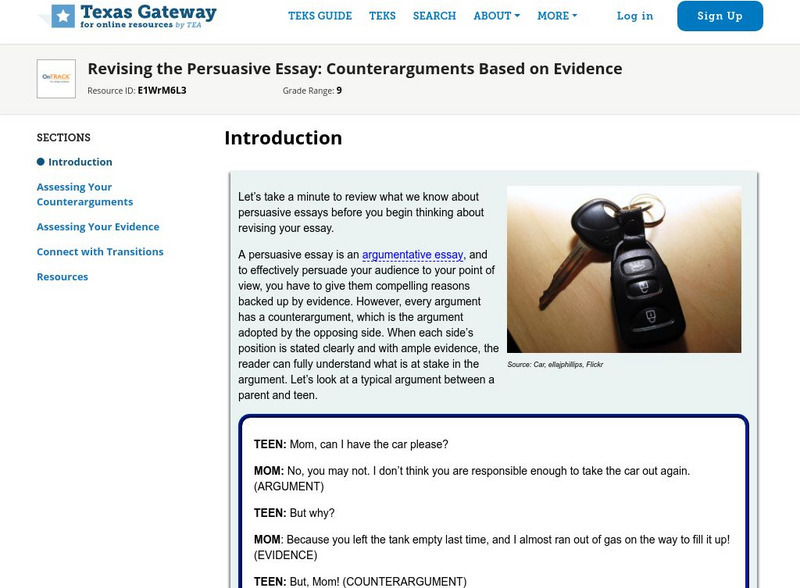Other
Wsu: Improving Your Argument
Students writing persuasive essays run the risk of using inaccurate or illogical reasoning. This site by Weber State University provides pointers to help eliminate this problem. Several dos's and don'ts are given, as are 14 common...
Other
The Nizkor Project: Fallacies
The Nizkor Project: Fallacies is a text provides an explaination of fallaces. It identifies the specific kinds of fallacies as well as gives a couple of examples.
Brown University
Brown University: Critical Writing and Thinking
Resource explains exactly what critial writing and thinking are, questions to help you think critically, paper writing tips, troubleshooting, and more.
Other
Kennesaw State University: Either/or
Clearly defines the either/or logical fallacy. Four detailed examples are also provided. Some controversial topics are used as examples, but no opinion of these topics is expressed.
Austin Independent School District
Austin Independent School District: Logical Fallacies [Pdf]
A slide show explaining different types of fallacies in persuasive texts including personal attack, bandwagon, appeal to authority, and many more. Then try to find the fallacy in several examples; answers and explanations provided.
iCivics
I Civics: Games: Argument Wars
Games in which players act as lawyers arguing head to head before a judge about real Supreme Court cases.
Polk Brothers Foundation Center for Urban Education at DePaul University
Depaul University: Center for Urban Education: Evaluate Support for a Claim[pdf]
This resource provides a downloadable worksheet to use after reading a nonfiction text. Students will evaluate an author's support for a claim by answering the questions and prompts provided on the worksheet.
Other
Style: Cause and Effect Writing
This site provides a list of what to do and not do for writing cause and effect essays. It also contains an evaluation checklist at the end which students can use for their own writing.
Grammarly
Grammarly Handbook: Methods of Reasoning
A list (with examples) of common errors in logic including the following: non sequiturs, hasty generalization circular argument, ad hominem, ad populum, and red herring.
Goshen College
Goshen College: Literary Analysis Guide
This resource not only explains how to analyze a text, but also, provides student examples of literary texts. W.9-10.9b Research/Argum, RI.11-12.5 Evaluate text structure
University of Toronto (Canada)
University of Toronto: Critical Reading Towards Critical Writing
Aimed particularly towards writing about non-fiction, this site describes ways to think about what you read so you can write more clearly. Focuses on analyzing the "ways of thinking" that an author uses so you can evaluate the validity...
Sophia Learning
Sophia: Harnessing "The Power of a Word"
In this PDF lesson plan, students will analyze the text "The Power of a Word" by Leonard Pitts, Jr. to identify an author's argument and how he deals with the counterargument. Students will extend the argument by agreeing or disagreeing...
University of North Carolina
University of North Carolina: The Writing Center: Fallacies
Discussion of common fallacies, along with definitions, examples, and tips on avoiding them.
Grammarly
Grammarly Handbook: Logic in Argumentative Writing
An explanation and examples of several different types of logic that can be used in argumentative writing.
ReadWriteThink
Read Write Think: So What Do You Think? Writing a Review
Contains plans for four lessons that ask students to write critical literature reviews after reading reviews of movies, music, restaurants, and books. In addition to objectives and standards, this instructional plan contains links to...
Texas Education Agency
Texas Gateway: Literary Nonfiction
Analyze literary nonfiction, particularly speeches, by making inferences and drawing conclusions based on evidence in the text.
Texas Education Agency
Texas Gateway: Analyze Shifts in Perspective in Informational/persuasive Text
[Accessible by TX Educators. Free Registration/Login Required] Explain shifts in perspectives in the same argument and make decisions about support used in those arguments.
Texas Education Agency
Texas Gateway: Differentiate Among Empirical, Anecdotal, and Logical Evidence
[Accessible by TX Educators. Free Registration/Login Required] Distinguish among different kinds of evidence in a text that supports conclusions and arguments in texts.
Texas Education Agency
Texas Gateway: Distinguish Between Summary and Critique (English Ii Reading)
Smmarize a text and distinguish between a summary and a critique, identifying nonessential information in a summary, and unsubstantiated opinions in a critique.
Texas Education Agency
Texas Gateway: Analyze an Argument: Practice 1 (English Ii Reading)
Analyze the quality, relevance, and credibility of evidence that supports or opposes an argument.
Texas Education Agency
Texas Gateway: Relevant Information and Valid Inferences (English I Writing)
[Accessible by TX Educators. Free Registration/Login Required] Learn strategies for evaluating and revising an essay so that it contains relevant information and valid inferences.
Texas Education Agency
Texas Gateway: Analyze an Argument: Practice 1 (English I Reading)
Analyze the quality, relevance, and credibility of evidence that supports or opposes an argument.
Texas Education Agency
Texas Gateway: Analyze the Relevance, Quality, and Credibility of Evidence
[Accessible by TX Educators. Free Registration/Login Required] Analyze the quality, relevance, and credibility of evidence that supports or opposes an argument.
Texas Education Agency
Texas Gateway: Revising the Persuasive Essay: Counterarguments Based on Evidence
[Accessible by TX Educators. Free Registration/Login Required] Learn strategies for evaluating and revising counterarguments that anticipate objections in an essay.



